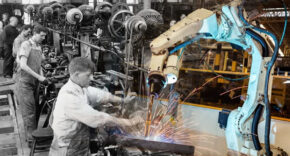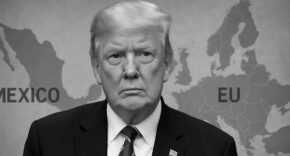The United States is witnessing an unprecedented wave of billion-dollar investments as major corporations expand their domestic operations. Companies like Eli Lilly, Apple, ExxonMobil, and tech giants like Meta and Amazon are pouring vast sums into new manufacturing facilities, research and development, and infrastructure. These investments have been significantly influenced by policies introduced during Donald Trump’s presidency, including tax cuts, tariffs, and incentives for domestic manufacturing. This article examines the nature of these investments, their economic impact, and the role Trump’s policies have played in shaping them.
Eli Lilly’s $27 Billion Investment in U.S. Manufacturing
Pharmaceutical giant Eli Lilly recently announced a $27 billion plan to construct four new manufacturing plants in the U.S. over the next five years. The company aims to mitigate the risk of tariffs on imported drugs—a threat that loomed during Trump’s tenure. The project is expected to generate over 3,000 permanent skilled jobs and create approximately 10,000 construction jobs.
Lilly’s CEO, David Ricks, acknowledged that tax-cutting legislation introduced during Trump’s first term laid the foundation for these investments. Trump’s push for domestic pharmaceutical production, coupled with potential import tariffs, has played a critical role in driving such large-scale expansions.
Apple’s Historic $500 Billion Commitment
Apple is making the largest investment in its history, pledging to spend over $500 billion in the U.S. over the next four years. This investment will expand manufacturing and R&D facilities in multiple states, including Texas, California, and North Carolina. A significant portion will be allocated to artificial intelligence (AI) and semiconductor production.
Under Trump’s administration, Apple benefited from corporate tax reductions and repatriation incentives, which allowed the company to bring back overseas profits at a lower tax rate. These financial advantages, combined with the administration’s emphasis on American manufacturing, have shaped Apple’s strategic decisions.
ExxonMobil’s $8.6 Billion Gulf Coast Plastics Plant
ExxonMobil is planning an $8.6 billion plastics manufacturing plant in Texas, despite growing concerns about pollution and environmental impact. The project, which will create 300 jobs upon completion, has faced scrutiny from environmental groups. Exxon is seeking substantial tax incentives under Texas’ Jobs, Energy, Technology, and Innovation (JETI) Act, which was passed in 2023 to attract major businesses.
Trump’s administration was notably supportive of the fossil fuel and petrochemical industries, rolling back environmental regulations and promoting energy dominance. This regulatory environment has likely encouraged companies like Exxon to continue investing heavily in domestic production despite global concerns over plastic waste and emissions.
Meta and Amazon’s Race to Build AI Data Centers
The explosion of AI technology has led to an unprecedented demand for data centers, with tech giants Meta and Amazon investing billions in infrastructure. Meta is building a $10 billion AI data center in Louisiana, while Amazon’s AWS division has committed $10 billion to a facility in Mississippi. These projects are expected to create thousands of jobs and generate significant economic activity.
Under Trump’s presidency, the administration prioritized keeping tech infrastructure in the U.S. through incentives and regulatory easing. The expansion of AI and cloud computing under this framework has positioned the U.S. as a global leader in data processing and high-tech development.
The Influence of Trump’s Policies on Billion-Dollar Investments
Donald Trump’s administration implemented policies that directly influenced corporate investment decisions in the U.S. These policies include:
- Corporate Tax Cuts: The Tax Cuts and Jobs Act of 2017 significantly reduced the corporate tax rate from 35% to 21%, making the U.S. more attractive for business investment.
- Tariffs on Foreign Imports: Threats of tariffs on pharmaceuticals, electronics, and other goods incentivized companies to shift production to the U.S. to avoid additional costs.
- Deregulation: The rollback of environmental and business regulations reduced operational costs for industries like fossil fuels, manufacturing, and technology.
- Investment Incentives: Federal and state-level incentives, such as tax abatements and grants, helped attract corporate expansion domestically.
While some of these policies were modified under the Biden administration, many corporate leaders still credit Trump’s first-term economic policies for providing the financial conditions that made their investments feasible.
The wave of billion-dollar investments signals a strong commitment to U.S. economic growth. These projects are creating high-paying jobs, fostering innovation, and solidifying America’s position as a global manufacturing and technology hub. However, they also raise concerns about environmental impact, reliance on tax incentives, and the long-term sustainability of some industries.
As the 2024 presidential election approaches, Trump’s influence on these investments remains a key talking point. Whether his policies will continue to shape corporate strategies depends on future political leadership and economic conditions. For now, the U.S. is experiencing a historic surge in domestic investment, reinforcing its role as a powerhouse for manufacturing, technology, and infrastructure.











